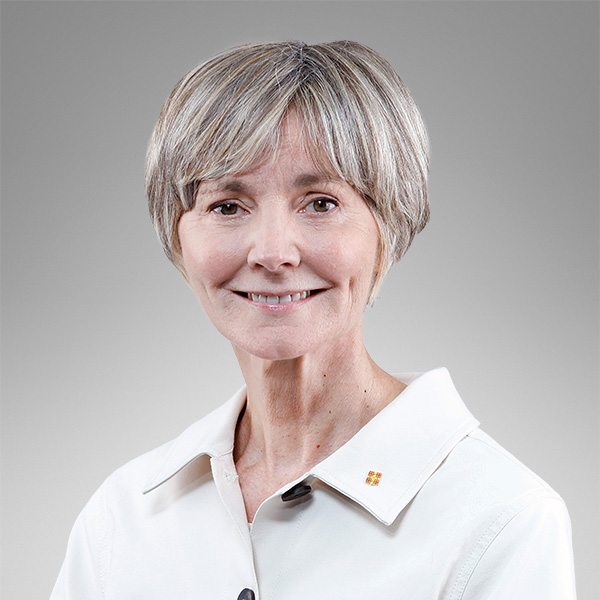Chantal Brisson
Professor Emerita
The founder of an innovative epidemiological research program, Professor Chantal Brisson devoted her career to studying psychosocial stressors in the workplace and their resulting health impacts—including high blood pressure, cardiovascular disease, and mental health problems—long before these issues gained widespread recognition. In doing so, she profoundly influenced research and prevention in occupational health, both in Quebec and internationally.
Tangible impacts on occupational health and prevention
With her training in industrial relations, occupational health, and epidemiology, Professor Brisson has developed unique expertise at the intersection of these disciplines. Hired by the Department of Social and Preventive Medicine in 1990, she built a research program structured around three major longitudinal studies recognized for their exceptional quality. Together, these studies demonstrated that psychosocial work stressors double the risk of recurrence after a heart attack and significantly increase the risk of high blood pressure, coronary disease, and depression. To this day, these three studies remain a prolific foundation for ongoing knowledge generation.
Her work was among the first to show that it is possible to reduce psychosocial stressors at work—and the prevalence of associated mental health issues and hypertension. Her findings informed amendments to the Act Respecting Occupational Health and Safety, which now requires employers to prevent psychosocial risks in the workplace just as they do other occupational health and safety hazards. Her research also enabled the Institut national de santé publique du Québec to develop guiding theoretical frameworks and practical tools to help businesses and occupational health teams in the public sector prevent such risks.
Influence beyond borders
Her research, supported by $20 million in funding, has produced 343 scientific presentations, 102 knowledge-transfer communications, and 155 publications, including articles in leading journals such as the Journal of the American Medical Association.
Professor Brisson has contributed to collective works alongside world leaders such as Professors Töres Theorell (Sweden) and Johannes Siegrist (Germany), and played an active role on the committee led by Professor Robert Karasek (United States). Her involvement led to the international validation of the principal instrument used to measure psychosocial stressors at work, thereby contributing to the global expansion of this field of research. She has also served with the International Commission on Occupational Health, on scientific committees for international conferences, and on scientific review panels in Quebec, Canada, and the United States.
Her contribution to training the next generation of researchers is another major legacy of her career. She has supervised 28 master’s theses, 15 doctoral dissertations, and 4 postdoctoral fellows. Through her guidance and support, she has fostered an inclusive and stimulating environment and inspired generations of scientists. Many of her former students now hold positions in higher education and research.
Through her exemplary commitment to teaching and her scientific leadership, Professor Brisson has left a lasting mark. She has made major contributions to advancing knowledge, training new generations of researchers, and preventing psychosocial risks in the workplace. Her impact endures both in Quebec and around the world.
